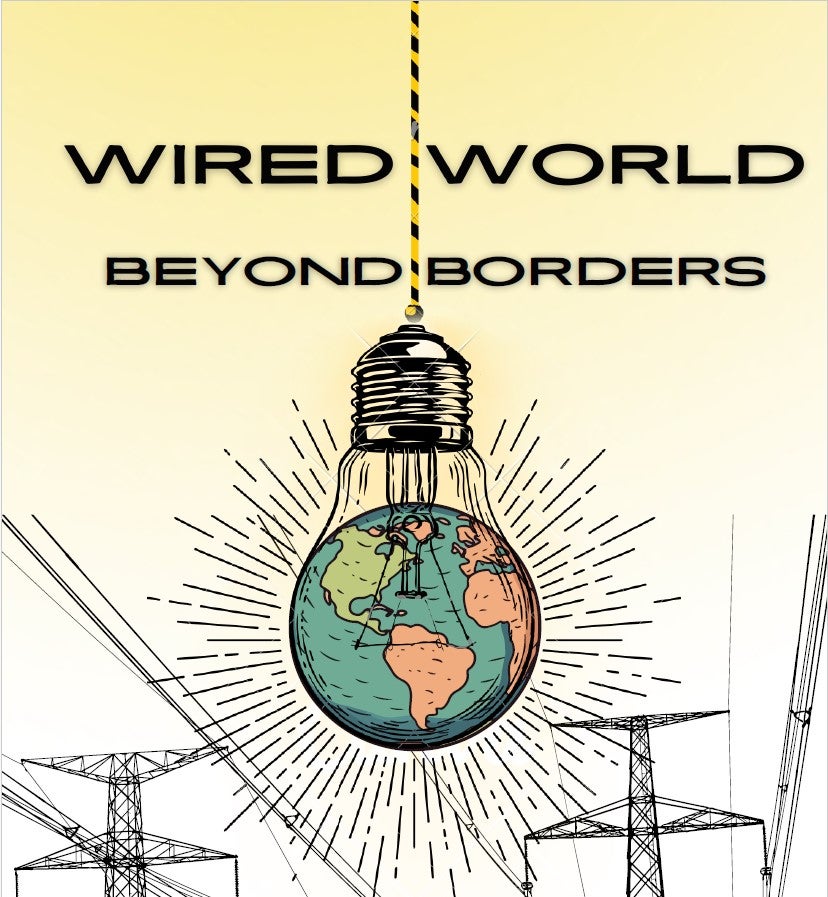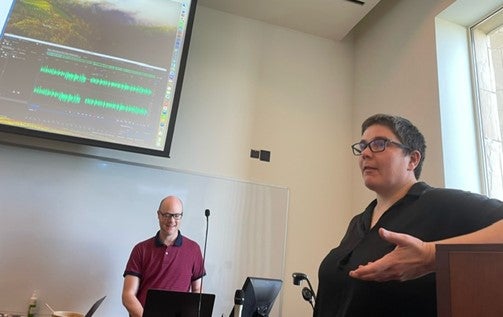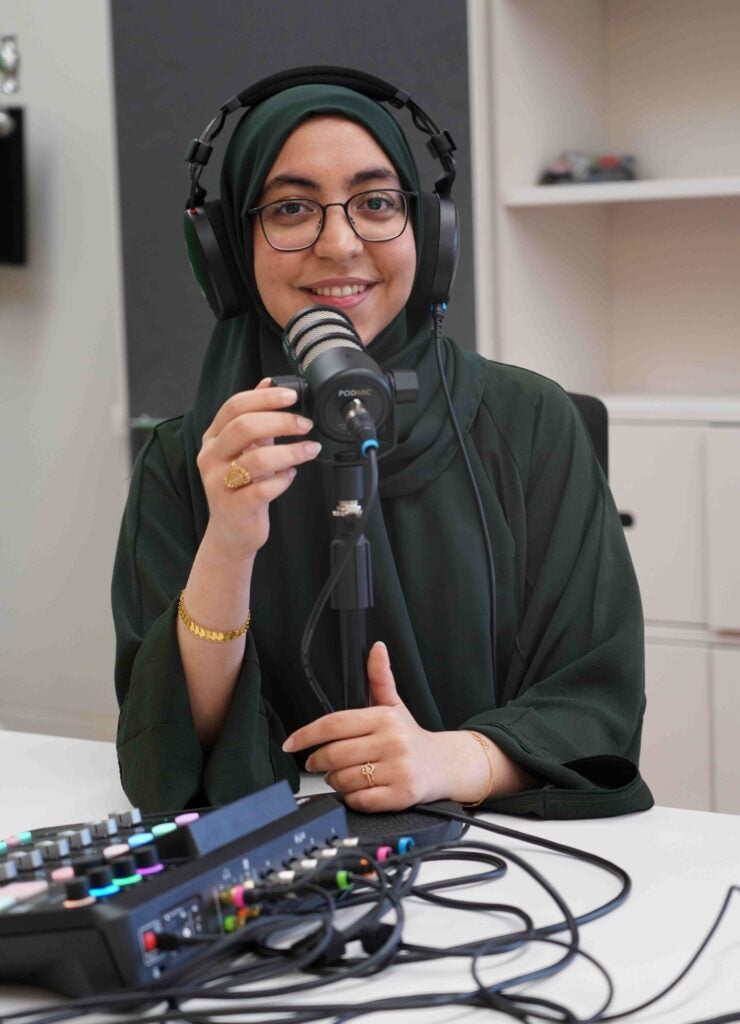Bringing History to Life: Students Produce Podcast for Energy History Course
Students in Assistant Professor Trish Kahle’s Global History of Energy class brought the history of energy to life when they were tasked with developing a compelling narration of their research complete with historical audio artifacts.
The result was a podcast series produced by the students called “Wired World: Beyond Borders,” publicly available on Spotify, where listeners are invited to “Untangle the wires of resistance, feel the sparks fly, and join us for a journey through the global history of power and people.”

The podcast covers a variety of topics from the history of electricity in Qatar, and around the world, to electricity theft, film propaganda, and the use of electricity in oppression and resistance. The episodes tackle enduring human problems such as unequal access to energy and a need for sustainability.

“These are really pressing issues, and so only offering strictly academic assignments misses what students find really meaningful about our class discussions–the relevance to things that they are confronting in their everyday lives,” explained Kahle, a historian of energy, work, and politics.
Data, Web, and Media Services Librarian Robert Laws supported the course by teaching students how to use the podcast equipment available in the Innovation Lab at GU-Q, a dedicated space in the library with professional-level video and audio equipment and editing software. “One of the most interesting aspects of the assignment was helping students find and think through how to use audio primary sources they had previously never thought of using, or translating visual sources into an audio format, such as maps, cartoons, and film clips,” he said.
Several students recorded and translated their family members’ recollections of the historical events they were studying. For an episode on Electrifying Qatar, Hissa Al-Hitmi (SFS’25) delved into her family’s archive and interviewed her father about life as a pearl diver, and the changes he witnessed in Qatar, including how the use of the radio influenced singing on the pearling boats.

“The course was really interesting, even though it was challenging,” adds Rokaiah Aldobashi (GU-Q’25), who used her podcast to explore the UK’s Electrical Association for Women.
“We did a deep dive into digital archives and had to correlate what we found with the census. The class was discussion-based, and everyone came to class excited to talk about what they had read. Making the podcast was a nice way to bring everything we had learned together into one final project.”
The creative course format and engagement with GU-Q’s state-of-the-art equipment also made the course exciting to teach. “I have to say that it was probably one of the most fun classes that I have ever taught,” said Kahle.
GU-Q is currently accepting applications for admission from students interested in Culture and Politics, or International Economics, History, or Politics. The university also offers a Minor in Arabic, and a Certificate in Energy Studies, among other areas of specialization. Applications will be accepted until February 1, 2024.